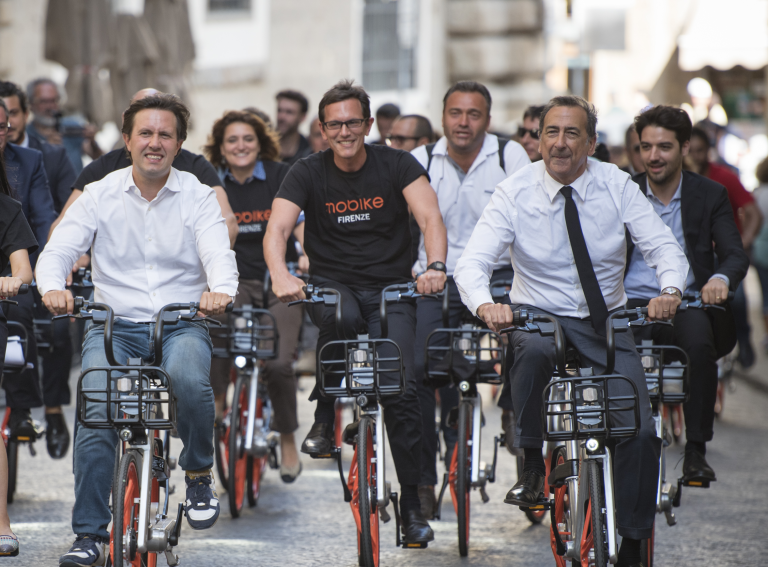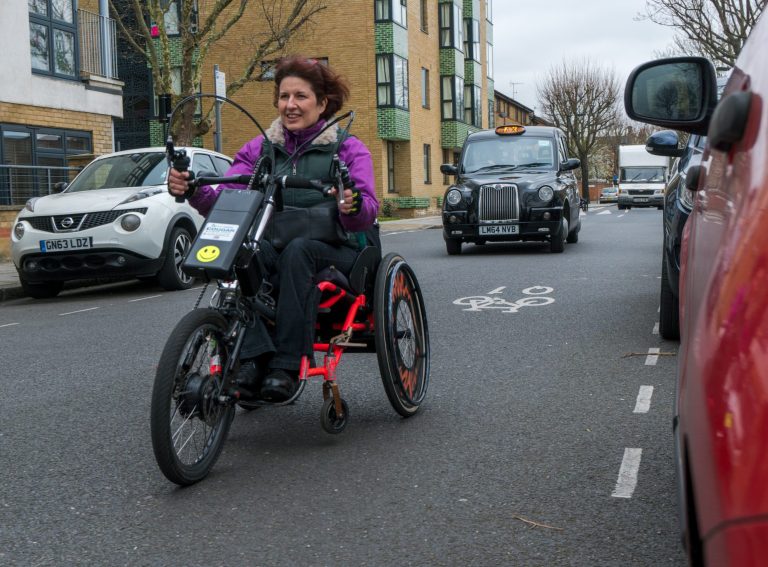Last year Antonia Jennings interviewed London Mayor Sadiq Khan on the biggest challenges faced by the capital.
Antonia is the CEO of Centre for London, where she heads up the think-tank’s team of ten to combat those challenges.
As the Centre for Local Economic Strategies’ former Associate Director and previous Programme Lead at the Economic Change Unit, Antonia has an array of insights on sustainability, economic democracy and organisational development.
Zag Daily: What does Centre for London do?
Antonia: “Centre for London is London’s think-tank providing research and advocacy to address the city’s challenges. Transport is one of those challenges. We frame our transport research into three categories: cost, climate and comfort. Cost is about asking if transport is at a price point that works for people and what more needs to be done to incentivise use of public transport. For comfort, we look into whether transport in London is accessible from both a disability point of view but also for communities who feel there are other barriers to accessing public transport. On the climate point, we look at how to decarbonise the transport system and deliver London’s roadmap to net-zero in an inclusive and sustainable way.”
Zag Daily: What’s a transport challenge unique to London?
Antonia: “Compared with other cities, a much lower proportion of people in London own a private vehicle but we still have the worst air quality in the country. So the biggest challenge is moving London away from being a largely private car-free city and what needs to happen to encourage that shift. The primary delivery of this has been the expansion of the ULEZ scheme, and there’s been a lot of political fallout around this regarding how much communities feel they’ve been brought along that journey. The way in which we shift from private cars is something we are trying to unpack and make headway on.”
Zag: What steps do you think London should take to move away from private cars?
Antonia: “We advocate a road user charging model, essentially a pay-per-mile scheme, as the next progressive iteration of policy that moves us towards a more sustainable transport system in London. That isn’t on top of the mayor’s agenda – he’s obviously spent a lot of political capital on the ULEZ expansion. But the reason that we still think it’s a good next step for London’s transport policy would be because of the flat fee model that ULEZ operates under. The main problem with this is to do with the outer London boundary. If you live in outer London close to the ULEZ boundary, there may be an Asda that’s one mile within the ULEZ zone or 20 miles outside of the ULEZ zone. With the current construction, it means that you’re perversely incentivized to travel further. And you have a small cohort of drivers who drive huge distances across London and yet still pay the same as someone driving two miles to the supermarket, so it’s a regressive charge.”
Zag: Would you want to see a progressive charge for driving discussed in the next parliamentary session?
Antonia: “Of course we’d like parties to address this. Sadiq Khan has made clear that it’s not a priority for him. I suspect this is because the ULEZ scheme is working according to the reduction in air pollution. Also, as I said, he’s already spent a lot of political capital on transport and probably wants to prioritise London’s other challenges.
“Something else we’d like to see Sadiq focus on in his third term is a transport strategy for outer London specifically. At the moment, London’s transport is governed by one strategy that sits across the whole city, but the needs of outer London are significantly different from those within Inner London. The availability of public transport is much less. The distance between critical amenities is much larger so you’re more likely to travel further to your GP, or to university, or wherever it is if you live in outer London. The outer London borders and the wider Southeast needs a different kind of approach.”
Zag Daily: What would the sustainable strategy for outer London include?
Antonia: “It would be the extension of the Bakerloo line, which is something that’s been long called for. It would also have an explicit focus on travel between outer London boroughs. We have the Superloop now which is a welcome addition but the general trend for transport development in London is often focused on getting into the inner city quicker. While that’s of course useful, a lot of people that live in outer London don’t work in central London so this agglomeration of public transport to the centre isn’t the right one in all circumstances. Transport needs shouldn’t just be for the highest earners to get into the city quicker. It’s also about making sure people can go between outer London boroughs.”
Zag Daily: How does this fit into other salient issues like housing and healthcare?
Antonia: “Issues in London are very interlinked, and the density of the city makes them more acute than other places. We know that housing development success depends on many metrics and relies on the transport infrastructure that sits across the development. Transport also has a huge impact on the health of Londoners. Like other cities, London is suffering from an obesity crisis and active travel solutions can assist with that. Then of course sustainable transport lowers air pollution which leads to a reduction in respiratory conditions. There’s also a point to be made on equity and access to opportunity – the poorest Londoners in the city are most likely to not own a car so public transport is absolutely essential not only to get to their job but also to engage in cultural activities, like seeing their family or friends.”
Zag Daily: What’s been one step forward that London has taken for transport and one step backwards?
Antonia: “A crucial step forward was the expansion of the ULEZ scheme. As I said, I don’t think it goes far enough and a road user charging system would be optimal, but it’s in the right direction. A step backwards would be the disappointing party manifestos which have come out over the last week that don’t include any new big transport infrastructure promised to London. Whether that’s a Crossrail 2, or a Bakerloo Line extension. I say that for the benefit of London but also for the wider country. Improvements to London transport means an increase in productivity, higher tax receipts, and more money for the Treasury to spend on levelling up investment in left-behind parts of the country. On top of that, it’s a step back because historically when governments come into power it’s unusual for them to announce a big infrastructure project midway through their term. Often what happens is a big manifesto promise actually gets watered down. It doesn’t normally go the other way so I think the odds of it coming in the next five years are quite small.”
Zag Daily: Who is one woman in the industry you’d like to spotlight?
Antonia: “Sarah McMonagle from Cycling UK is doing fantastic work and has set up a women’s network that’s making huge advances in getting women on bikes. We know this is another acute problem in London as cycling is predominantly taken up by men.”





